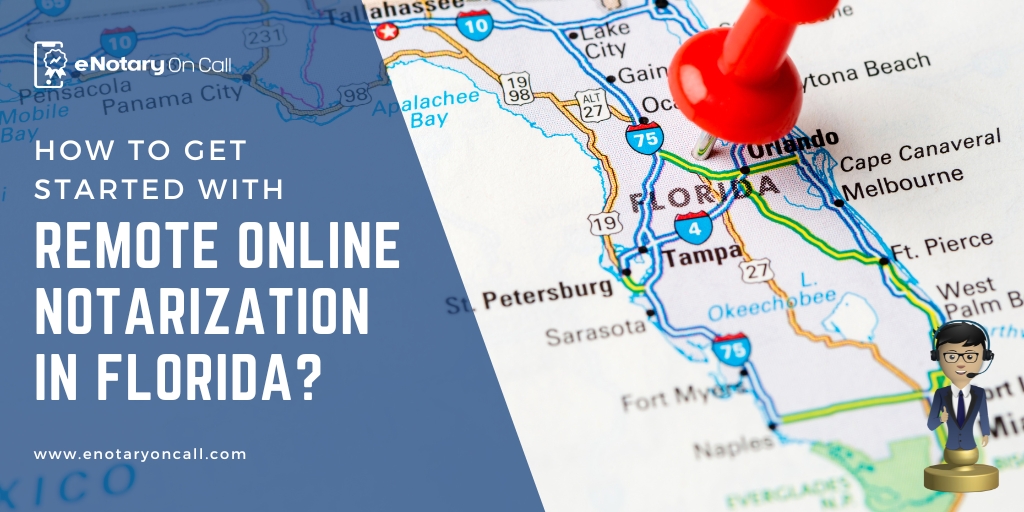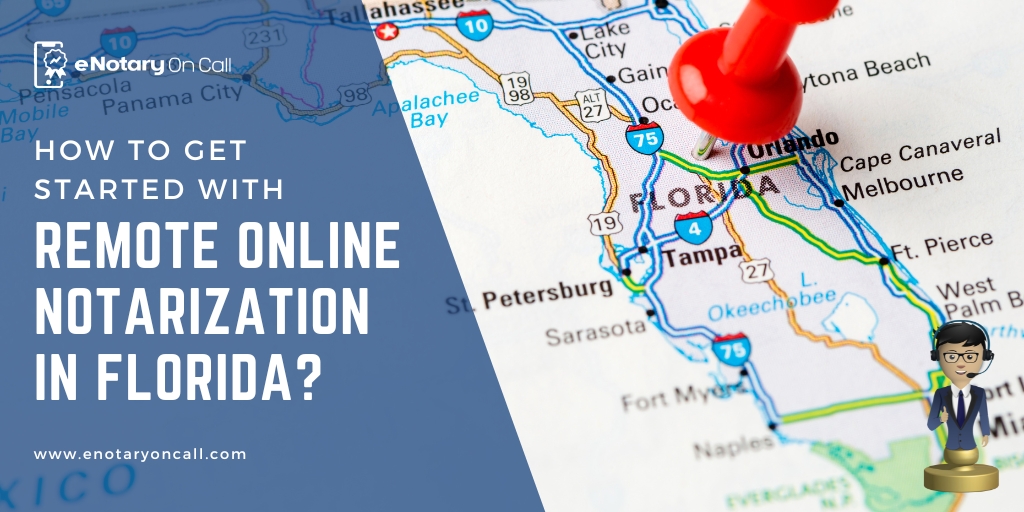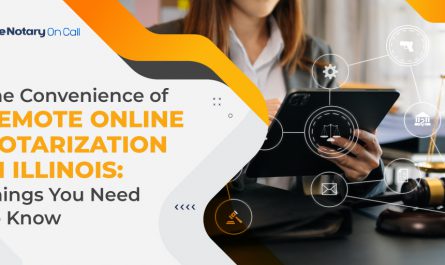
If the title caught your attention, you are probably a resident of Florida or came to Florida for a purpose and are looking for a notarization.
To ease your way out here, we will give you information about the remote online notarization platforms in Florida. And a significant transformation the notary industry is experiencing with the advent of advanced notarization platforms.
This innovative approach, legalized in 2020, allows notaries to authenticate documents via secure online platforms, eliminating the need for in-person meetings. The convenience, efficiency, and enhanced security of many platforms have made it increasingly popular among Floridians.
It simplifies the notarization process and caters to the modern demands for accessibility and flexibility in legal and financial transactions.
Rise of Remote Online Notarization
In 2023, the number of customers and signers utilizing online notarization platforms in Florida surged by 40% and 35%. This growth underscores the growing trust and reliance on the digital approach of notarization services across the state.
Florida RON Law Fact
House Bill 409, signed by Ron DeSantis, became a law that allowed Remote Online Notarization in the state of Florida. This law became operative on January 1st, 2020. Advanced audio and visual video conferencing aids in delivering top-notch electronic notarization services to customers.
RON in Florida for Notaries
In Florida, there is a series of well-defined steps to ensure a seamless and legally compliant process when performing virtual notarization.
Firstly, a notary public must register with the Florida Department of State as an online notary, which includes completing a state-approved training course and passing a test on RON procedures and technology.
Once the registration process is completed, the notary must select an approved, legally compliant remote online notarization platform that provides the necessary audio-video communication and identity verification capabilities.
When initiating a notarization, the signer must present valid identification, which the platform will verify using credential analysis and knowledge-based authentication. During the notarization session, the notary and signer connect via live video, allowing the notary to witness the signing of the document in real-time.
The notary then digitally affixes their seal and signature to the document. Finally, the notary must maintain an electronic journal and a recording of the notarization session, ensuring all records comply with Florida’s legal requirements.
This easy-to-understand and convenient step-by-step approach guarantees a secure, efficient, and legally online notarization process sitting in remote locations.
Start with Remote Online Notarization in Florida as a Customer
Find an Online Notary:
Start by searching for a registered online notary in Florida. Many notaries advertise their remote services online, or you can use a directory of registered online notaries provided by the Florida Department of State.
Choose a RON Platform:
Alternatively, you can use top Remote Online Notarization platforms in the US such as eNotary On Call to get your documents notarized virtually in no time at your own schedule. Make sure you have access to a computer or mobile device with a camera and microphone and a stable internet connection. The notary will guide you through the platform’s use.
Prepare Your Documents:
Before the notarization session, ensure all your documents are ready and in a digital format. The RON platform such as eNotary On Call will allow you to upload documents such as pdf, docx and more for the notary to review.
Verify Your Identity:
Be prepared to verify your identity. The platform will require you to present a valid ID, which will be analyzed through credential analysis. You might also need to answer knowledge-based authentication questions to confirm your identity. Some platforms also let customers bypass KBA. eNotary On Call has made it easy as per the States’ government rule.
Join the Notarization Session:
Join the online notarization session via the platform at the scheduled time. The notary will witness your signature through live audio-video communication.
Receive Your Notarized Document:
After the notarization, you will receive your notarized document electronically. Ensure you save a copy for your records. The notary will also keep an electronic journal and recording of the session as required by Florida law.
Factors Impacting Florida Population for RON:
The reason for its popularity in states like Florida is due to various factors. Here are a few top factors for their choice of RON:
Convenience and Accessibility:
Florida residents, including those in remote or rural areas, can access notary services without the need to travel.
Busy professionals and families appreciate the ability to notarize documents outside of traditional business hours, reducing the need for in-person appointments and allowing for 24/7 accessibility.
Technological Advancements:
Enhanced security features, such as multi-factor authentication, secure digital signatures, and video recording of the notary session, make virtual notarization a trustworthy option.
The development of intuitive and accessible online notarization platforms has made it easier for a broader audience to use RON services.
Economic Factors:
RON can be more cost-effective by eliminating travel expenses and reducing the time taken off work for in-person notarizations.
As remote work becomes more prevalent, the demand for remote notarization services has increased, allowing employees to notarize documents without leaving their home office.
Legal and Business Needs:
Florida’s robust real estate market, including a high volume of out-of-state transactions and mortgage refinances, benefits significantly from online notarization, facilitating easier closings.
Companies increasingly prefer notaries offering virtual notarization services for efficiency in notarizing documents, contracts, and agreements, especially in industries that require frequent notarizations, such as finance, legal, and insurance.
These factors collectively contribute to the growing preference for remote online notarization in Florida, providing a blend of convenience, safety, technological benefits, cost savings, and support for both personal and professional needs.
Conclusion
In a nutshell, remote online notarization is revolutionizing the way Floridians get their documents notarized. It’s all about making life easier, safer, and more efficient. Whether you’re in a bustling city or a cozy rural town, you can get your notarization done without stepping out of your house. The COVID-19 pandemic has shown us just how valuable contactless services can be, and with the latest tech advancements, RON is not only super convenient but also incredibly secure.
Now you do not have to worry about taking time off work or making that long drive just to get a signature. Plus, if you’re dealing with real estate or business documents, the speed and ease of RON can make a world of difference.
So, if you want to experience the ease of notarization today, sign up at eNotary On Call. It’s the ultimate platform for hassle-free, reliable, and secure online notarization. Give it a try and see how it can simplify your life!
FAQ
Can a notary sitting in San Fransico do notarization in Florida
No, a notary sitting in San Francisco cannot perform notarizations for documents that need to be notarized under Florida law. In the United States, notaries are commissioned by individual states and must adhere to the laws and regulations of the state in which they are commissioned. Therefore, a notary must be commissioned in Florida to perform notarizations for documents requiring Florida notarization.
However, remote online notarization (RON) allows a Florida-commissioned notary to notarize documents online for clients who might be located anywhere, as long as the notary is physically located within the state of Florida at the time of the notarization.
What type of Remote Online Notarization (RON) platforms are allowed in Florida?
In Florida, notaries are required to use state-approved Remote Online Notarization (RON) platforms that meet specific legal and technical standards. These platforms must:
Use multi-factor authentication methods, such as knowledge-based authentication (KBA) and biometric verification, to confirm the identity of the signer.
Maintain a secure audio-visual recording of the notarization session, which must be stored and retrievable for a period specified by state law (typically 10 years).
Adhere to all relevant Florida laws and regulations governing RON, including maintaining privacy and security standards to protect the information of the signer.



